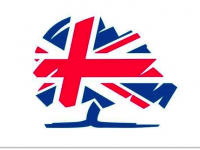With this year’s election being the closest in decades, there are many questions being asked regarding what will happen if there’s no clear cut winner on the night. Here’s an explanation of what will happen if, just like during the 2010 election, no party gets a majority.
“If a party has the most MPs, they’ll form the next Government right?”
This depends. In total there are 650 constituencies, and once votes have been counted, the party with the most MPs must hold a majority of the House of Commons. This is where the party has more MPs than all other parties. To have a majority, a party must hold 326 seats. Parties need this many to be able to vote through their new laws without being defeated by opponents, and if this is not achieved after the election, there will be a hung Parliament.
“A hung Parliament, what does that mean?”
Like in the 2010 election, if none of the parties are able to get enough MPs to form a majority on their own, this results in a “hung” Parliament. This means parties will negotiate to form another coalition government, just as the Conservatives and Lib Dems did 5 years ago.
However, if no coalition can be formed, party leaders could brave trying to run as a minority government. This can be tricky as it is very difficult to pass new laws with a minority government, and they will be relying on the support of smaller parties to pass them. This could happen this year with either Conservatives or Labour opting to run as a minority.
“So it’s a race for who can form a coalition the fastest?”
No, with a hung Parliament the previous leader (David Cameron in this case) is entitled to try and form a coalition first, and he will stay on as Prime Minister as this happens. However, if after time it is evident that he can’t, Ed Miliband will have the chance to then form his own coalition that would force Cameron to resign, making the Labour leader our new Prime Minister. This doesn’t mean however Miliband has to wait to try and form a coalition, and he can hold talks with potential partners while Cameron does too.
In 2010, it took the Conservatives and Lib Dems only 5 days to form their new government, however this time it is expected to take longer for negotiations.
“So when will we know who the new leader is?”
If a government is formed (either minority or coalition), they must assure they have the confidence of the House of Commons, meaning the government formed is able to get the votes it needs for their proposed laws passed in the Queen’s Speech, which will be held on Wednesday 27 May.
“So it’s likely there’ll be another coalition?”
It’s said to be less likely than 2010, however this depends on different factors:
– Whether the potential coalition partners have enough MPs between them to command a workable majority
– Whether the largest party wants to form a coalition or if they want to try governing as a minority
– Whether Party leaders can convince their parties it’s a good idea. David Cameron has promised to give his party a say, just as Nick Clegg did with the Lib Dems in 2010 and will do again.
– Whether they can negotiate their policies and find common ground. Junior parties will inevitably have to ditch some of their policies but they will obviously insist on keeping others.
With the closeness of this election, this is why Parties have been fighting for every vote, as well as rumours and whispers circling round of possible coalitions that could happen after the end of tomorrow.






Leave a Reply